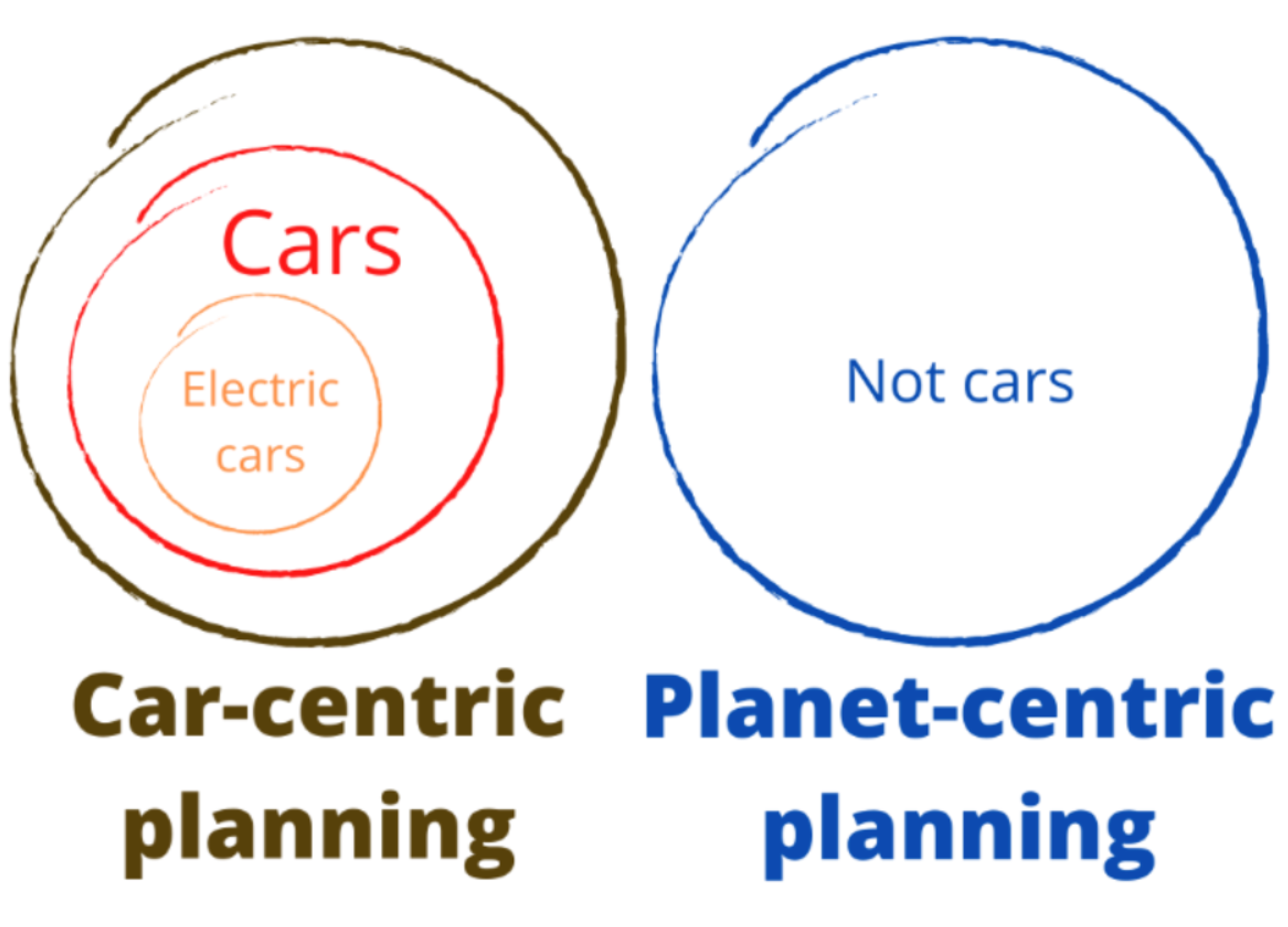Why transport needs to turn its back on cars, however they’re powered


· 2 min read
For decades transport planners have focused on building efficient and safe road networks. Car-centric planning has given us motorways, suburbia, expansive parking lots and multi-car households. While some cities have reliable, frequent transit services, the maps that define where we live are road maps. So ubiquitous is the car to our lives that roads literally define our neighbourhood form, unquestioned.
To preserve human civilisation we are going to need different maps. For the transport sector that means a shift in focus from car-centric to planet-centric planning. Rather than a goal of efficient traffic, we should focus on access: that means we should care more about how people participate in the activities that make a good life, than how quickly they can drive across town.
Cars of any kind are around for a while because that's the world we have inherited. Turning our backs on planning for cars doesn’t mean they will be banned, or not provided for. But all effort and investment in transport from now on must be in access, not mobility. We will continue to invest in infrastructure, but not in new road lanes for cars. New investment will be in building resilient places where walking, cycling and shared transport are prioritised as part of healthy, thriving communities in harmony with the land they inhabit.

Far from making it harder to get around, focusing on access can only improve mobility. Planet-centric planning delivers safer, more efficient streets, while improving equity of participation. We already have enough roads for buses and rural traffic that needs them, and for freight that we cannot shift onto rail – and a focus on access frees road lanes for people who need them most. An equitable transition, including for disabled people and those living rurally, is predicated on fewer miles travelled by cars. Discarding car-centric planning means that no government should promote or subsidise cars of any kind, regardless of fuel source. A shift away from fossil fuels is inevitable in the motor industry. But its acceleration by transport authorities perpetuates the delusion that cars are a sustainable transport mode that will help humans survive this century. Electric cars in policy are a hugely dangerous distraction from the urgent and compelling need for a different kind of transport planning.Government should only invest in, and plan for, sustainable transport that contributes to a survivable planet. It is astounding how controversial that previous sentence will sound to some.There is no overlap between planet-saving planning, and car-centric planning.
illuminem Voices is a democratic space presenting the thoughts and opinions of leading Energy & Sustainability writers, their opinions do not necessarily represent those of illuminem.
illuminem briefings

Carbon · Environmental Sustainability
illuminem briefings

Carbon Regulations · Public Governance
illuminem briefings

Climate Change · Environmental Sustainability
Politico

Climate Change · Agriculture
UN News

Effects · Climate Change
Financial Times

Carbon Market · Public Governance